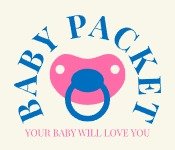When it comes to feeding your newborn, one of the earliest and most important decisions you’ll face is whether to breastfeed or bottle feed. Both methods come with their unique benefits and challenges. This guide provides an in-depth comparison of breastfeeding and bottle feeding, offering insights that can help parents make an informed decision.

Nutritional Value
Breastfeeding:
Breast milk is often regarded as the gold standard for infant nutrition. It contains the perfect balance of nutrients that a baby needs during the first six months of life, including proteins, fats, carbohydrates, vitamins, and minerals. Additionally, breast milk offers antibodies that help boost a baby’s immune system, providing protection against infections and illnesses such as ear infections, respiratory infections, and gastrointestinal issues.
- Immune-boosting benefits: Breast milk contains immunoglobulins and other bioactive molecules that are not found in formula, helping to protect the infant from diseases.
- Evolving nutrition: As the baby grows, the composition of breast milk adjusts to meet their changing nutritional needs.
Bottle Feeding (Formula):
Infant formula is a nutritious alternative to breast milk, designed to mimic the key nutrients found in breast milk. Most formulas are fortified with iron, vitamins, and other essential nutrients, and they follow strict FDA regulations to ensure safety and quality.
- Variety of options: Formula comes in different types (cow’s milk-based, soy-based, hypoallergenic) to accommodate dietary restrictions or sensitivities.
- Predictable nutrition: Unlike breast milk, formula does not change composition, which may be advantageous for parents who want consistent nutrient delivery.
Convenience and Flexibility
Breastfeeding:
Breastfeeding is convenient for some parents because there are no bottles or formula to prepare, and milk is always available at the correct temperature. However, it can be limiting for parents, especially those who want to share feeding duties with a partner, return to work, or need more schedule flexibility.
- On-demand feeding: Breast milk is always readily available, but this also means that the breastfeeding parent may need to be available every few hours, which can be demanding.
- Pumping: While pumping allows others to help with feedings, it can be time-consuming and require planning and specialized equipment.
Bottle Feeding:
Bottle feeding with formula or pumped breast milk offers more flexibility since anyone can feed the baby. This option can be especially helpful for working parents, shared parenting, or those with multiple caregivers.
- Ease of sharing: Bottle feeding allows the non-breastfeeding parent or other caregivers to participate in feeding, which can give the breastfeeding parent more rest or time for other activities.
- Preparation time: Formula feeding does require preparation, including mixing, measuring, sterilizing bottles, and warming the milk to the appropriate temperature.
Cost Considerations
Breastfeeding:
Breastfeeding is generally more cost-effective, as it doesn’t require purchasing formula, bottles, and other feeding supplies. However, there are potential costs for breast pumps, nursing bras, lactation consultant services, and storage containers for expressed milk.
Bottle Feeding:
Formula feeding can be expensive, depending on the brand and type of formula chosen. The cost of formula adds up quickly, especially in the first few months when babies eat frequently. Additionally, the costs of bottles, nipples, sterilizers, and other feeding accessories can further increase expenses.
Bonding and Emotional Connection
Breastfeeding:
Breastfeeding can foster a unique emotional bond between the parent and baby. The physical closeness, skin-to-skin contact, and shared feeding experience often enhance the bond between the two. Oxytocin, the hormone released during breastfeeding, also promotes feelings of affection and bonding.
Bottle Feeding:
Bottle feeding, whether with formula or breast milk, also provides an opportunity for bonding. Since anyone can give a bottle, partners and other caregivers can enjoy the same eye contact, cuddling, and interaction during feedings, allowing them to bond more closely with the baby.
Health Benefits for Parents
Breastfeeding:
Breastfeeding offers significant health benefits for the parent as well. It can help with postpartum recovery by promoting uterine contractions and reducing bleeding. Breastfeeding also burns extra calories, which can aid in postpartum weight loss. Additionally, breastfeeding may lower the risk of certain cancers (breast and ovarian), type 2 diabetes, and postpartum depression.
Bottle Feeding:
While bottle feeding does not offer the same direct health benefits as breastfeeding, it does provide more physical flexibility. Parents who bottle feed may have more freedom to rest, sleep, or return to work sooner without having to worry about breastfeeding schedules or the challenges of nursing in public.
Social Stigma and Support
Breastfeeding:
While breastfeeding is widely encouraged by health organizations like the American Academy of Pediatrics (AAP) and the World Health Organization (WHO), societal attitudes toward public breastfeeding vary. Some parents may feel supported and encouraged, while others may encounter stigma or discomfort, particularly when breastfeeding in public spaces.
- Access to support: Breastfeeding can come with challenges like latching problems, supply issues, and sore nipples. Support from lactation consultants, breastfeeding support groups, or online communities can be helpful.
Bottle Feeding:
Bottle feeding, while generally more socially accepted, can sometimes come with its own pressures. Some parents may feel judged or guilty if they choose not to breastfeed, even if formula feeding is the best option for their family. However, there tends to be less societal scrutiny about where and when a baby is bottle-fed.
Health Risks and Considerations
Breastfeeding:
There are relatively few health risks associated with breastfeeding when the parent is healthy. However, breastfeeding may not be recommended in certain situations, such as if the parent is taking certain medications, has an active infection like HIV, or is undergoing chemotherapy. Additionally, some parents may experience challenges like mastitis, blocked ducts, or low milk supply, which can make breastfeeding more difficult.
Bottle Feeding:
Formula feeding does not offer the same immune-boosting properties as breast milk, meaning formula-fed babies may be at a slightly higher risk of infections and illnesses, particularly in the early months. Additionally, improper formula preparation or bottle sterilization can lead to health risks, such as bacterial infections.
Environmental Impact
Breastfeeding:
Breastfeeding is a sustainable and environmentally friendly option. It requires no packaging, transportation, or waste, and there are no energy costs involved in its production. Pumping breast milk does require electricity or batteries for the pump, but overall, breastfeeding has a lower environmental impact.
Bottle Feeding:
Formula feeding has a larger environmental footprint. The production of formula involves packaging, manufacturing, and transportation, and there is waste associated with formula cans, bottles, and disposable feeding supplies. Additionally, bottle sterilization requires water and energy.
Conclusion: Which Option is Right for You?
There is no one-size-fits-all answer to the question of breastfeeding versus bottle feeding. Each family’s situation is unique, and the decision should be based on individual circumstances, health considerations, lifestyle preferences, and emotional readiness.
- Breastfeeding offers the ideal nutritional profile and health benefits for both the baby and the breastfeeding parent but may require more time, commitment, and support.
- Bottle feeding, on the other hand, provides greater flexibility and convenience, allowing other caregivers to share in feeding responsibilities and offering a reliable alternative for parents who cannot or choose not to breastfeed.
Ultimately, the best choice is the one that works for your baby, your family, and your lifestyle. Whether you choose to breastfeed, bottle feed, or combine the two, your love, care, and attention are the most important factors in your baby’s healthy development.
